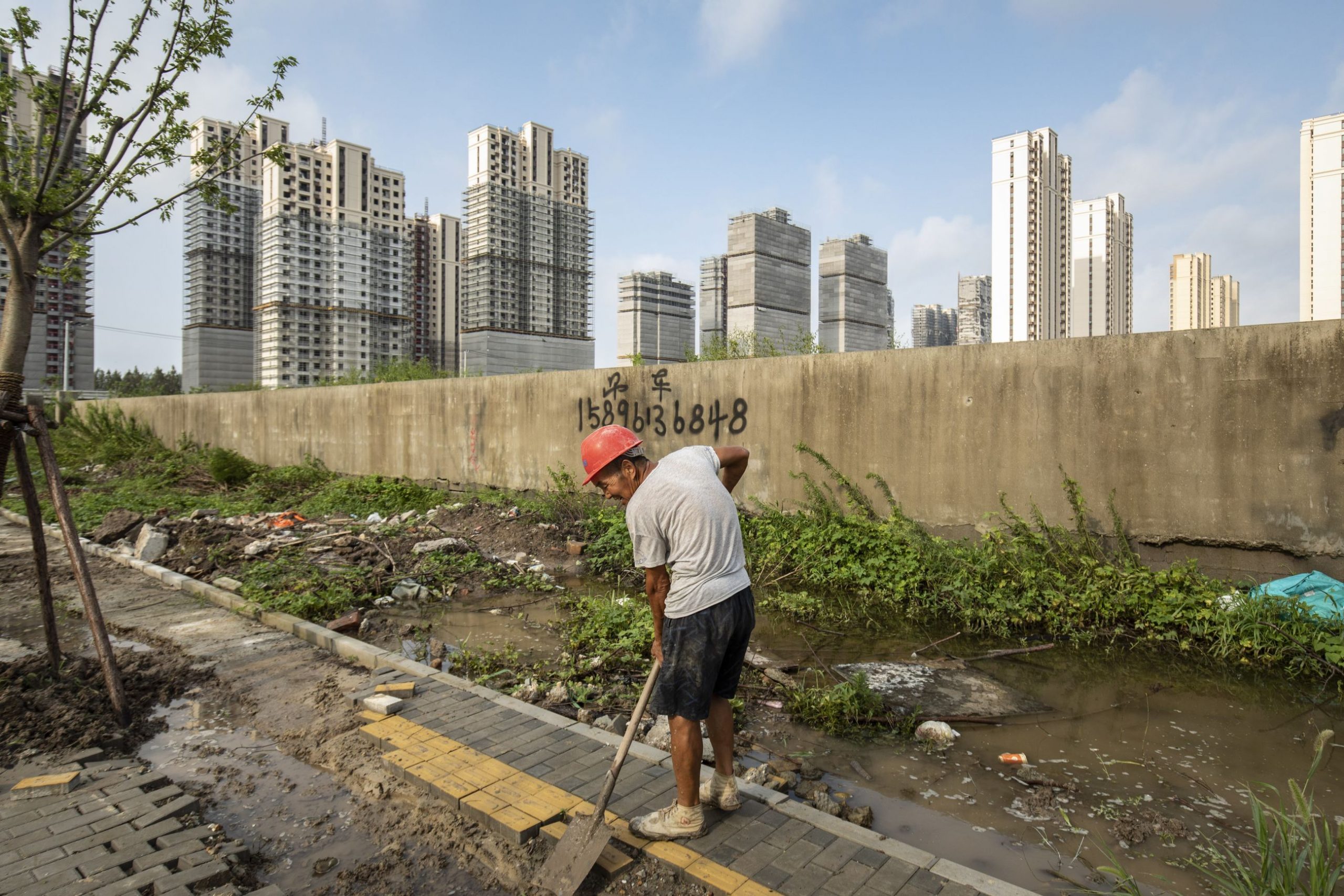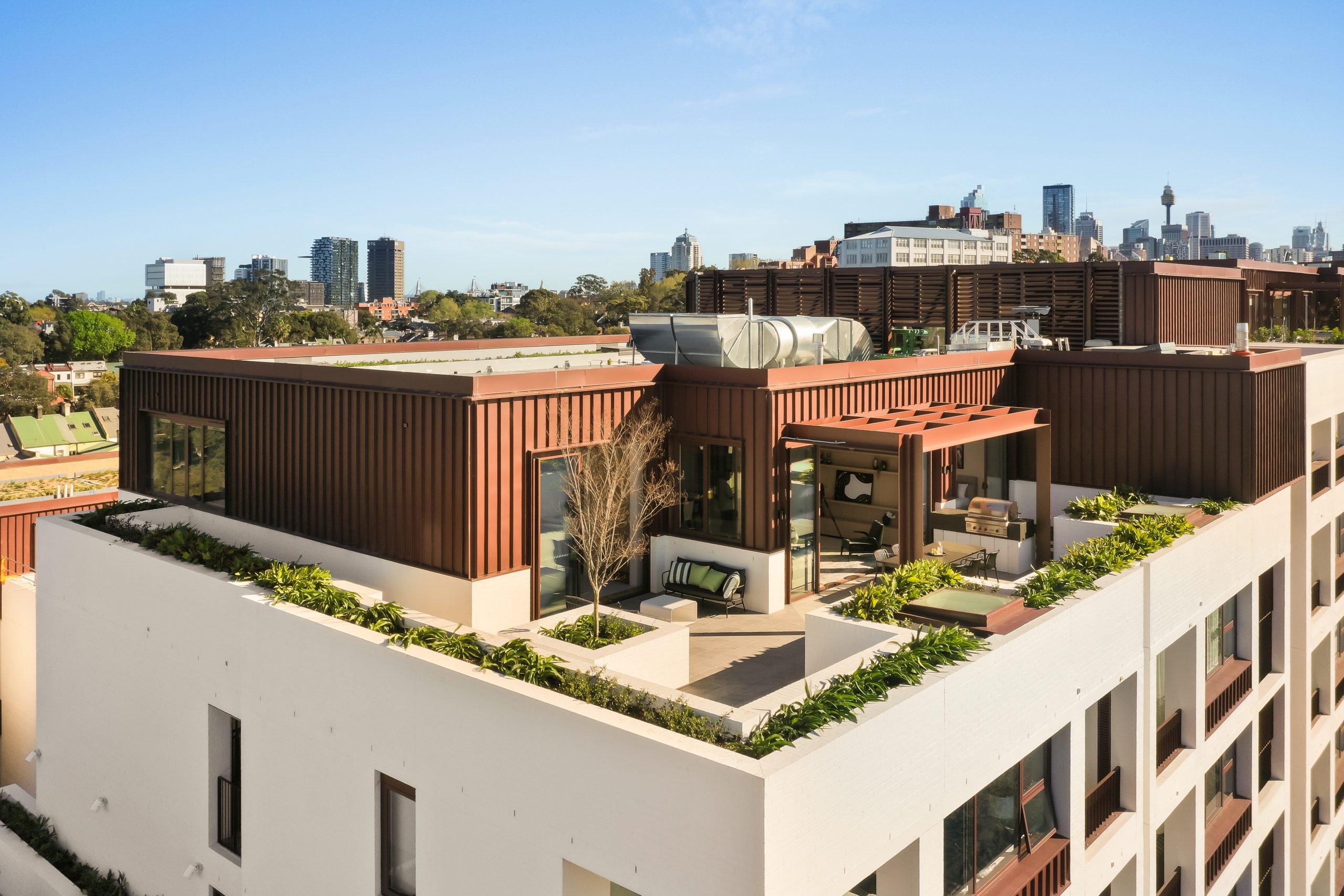China Home Sales Are Falling Sharply
Decline in September, typically a strong month, raises concerns about economic growth.
Home sales in China are seizing up as curbs on lending and worries about developers’ financial health deter house buyers, casting a pall over an industry that is central to the Chinese economy.
In recent days, numerous big developers have reported lower sales figures for September, with many showing year-over-year declines of more than 20% or 30%. That is a stark drop-off for a month that leads up to China’s Oct. 1 National Day holiday, whose promotions usually make this one of the strongest selling periods of the year.
If sustained, the sharp downturn could have serious economic consequences. Real estate has played an outsize role in China’s economy in recent years, compared with its importance in many other countries, and Chinese families have much of their wealth tied up in homes and in investment properties. Slower sales could spill over into investment and construction, potentially hurting growth, employment and local government finances. Discounting to spur sales could hurt home prices and hit household wealth.
Developers such as China Evergrande Group are very publicly struggling to adapt to a series of changes, including rules dubbed the “three red lines” that were introduced last year to curb debt growth at financially weaker companies, as well as caps on banks’ property lending. Some have missed interest payments, and stock and bond prices have dropped sharply across the industry. The news has alarmed home buyers, especially as developers sell many apartments before they are built.
The sales slowdown was partly a result of tighter government policy on mortgages and waning confidence among home buyers, said Cheng Wee Tan, a senior equity analyst at Morningstar. Customers are worried that developers won’t be able to complete their projects, and media reports about unfinished Evergrande constructions have added to those fears, he said.
Tian Guo, who lives in the eastern city of Wenzhou, had been actively looking for an apartment. She said she was now hesitating, after news about Evergrande made her worried about developers’ finances.
She said she now wouldn’t consider buying properties that were still being built. “I’m afraid they will be left unattended before construction is finished,” said Ms. Tian, who is 25 years old. “If we really had bad luck—throwing in our lifetime savings to buy an unfinished apartment—then we would be doomed,” she added.
On Tuesday, Longfor Group Holdings Ltd. and China Resources Land Ltd. became the latest major real-estate companies to release weak data. In a filing, Longfor said September’s contracted sales totalled the equivalent of $3.1 billion. That was down nearly 33% from a year earlier. China Resources Land reported a drop of nearly 24%.
Contracted sales are a widely watched industry measure. They reflect new contracts signed with home buyers and are a more forward-looking measure than revenue, which is typically recorded when companies hand completed units over to purchasers.
Stronger players haven’t been spared, with contracted sales falling 34% at China Vanke Co., the country’s largest developer by market value. Unlike many of its peers, Vanke also enjoys investment-grade credit ratings, indicating its debt is seen as comparatively safe.
Evergrande hasn’t reported figures to Hong Kong’s exchange yet but warned on Sept. 14 that “ongoing negative media reports” had deterred home buyers, which would likely mean significantly lower sales in September. The other developers didn’t give explanations for their reduced sales.
The official corporate figures broadly tally with earlier data from CRIC, a Chinese data provider, which previously said total contracted sales among China’s 100 largest developers fell 36% year-over-year in September.
Huang Jun, a 25-year-old real-estate agent in Foshan, a city in the southern province of Guangdong, said he’s seen prices for new homes downtown drop about 20% from a recent peak in March, to the equivalent of about $346 a square foot on average.
“Virtually all developers have offered discounts over the past two months,” said Mr. Huang, who’s worked as a local property agent for four years. “Just like Evergrande, they must be under pressure to sell more flats” to repay borrowings, he said.
He said the discounts had attracted prospective buyers during the recent weeklong national holiday, but few sealed the deal. “Most of them want to wait and see if the prices would go down further,” he said, “In China, most people prefer to buy apartments when prices are rising, not falling.”
Falling sales could create stress at more developers, potentially preventing some from completing existing projects or forcing them to scale back future plans, said Logan Wright, director of China market research at Rhodium Group.
“If that continues, then the broader concern is whether some of the tightening measures come at the expense of the health of the entire sector,” Mr. Wright said. “You are going to see weaker financial conditions and weaker construction activities spilling out into the broader economy.”
Fitch Ratings last month cut its forecasts for Chinese economic expansion this year and next, saying slower housing activity would “take a toll on domestic demand.” It cut its forecast for GDP growth this year to 8.1% from 8.4%, and its forecast for next year to 5.2% from 5.5%.
From building sites to showrooms, the industry is an important source of both blue and white collar jobs in China. About 18% of China’s 285 million migrant workers earned income from construction-related jobs in 2020, according to China’s National Bureau of Statistics, while many college graduates work as real-estate agents. Local governments, meanwhile, rely on land sales to developers for about a third of their income.
All in, China’s residential real-estate market, including construction activity and services, accounted for about 23% of gross domestic product in 2018, according to Goldman Sachs.
The bank’s economists have estimated that a 15% drop in land sales and a 5% decline in property sales and home prices would knock 1.4% off China’s GDP next year. In a worst-case scenario, they said a 30% decline in land sales and a 10% drop in property sales from this year to next could depress GDP by as much as 4.1%, with the biggest impact coming from tighter financial conditions.
For now, the drops in contracted sales reflect shrinking sales volumes more than declining prices, suggesting that while transactions are drying up, prices haven’t yet been as badly affected.
At Sunac China Holdings Ltd., for example, the average selling price fell just 1.4% to the equivalent of slightly under $200 a square foot. But its contracted sales area shrank 31% to about 832 acres.
Still, there are signs that Chinese consumers think prices could fall. In the third quarter, the share of urban bank depositors in China expecting rising housing prices declined to 19.9%, according to a survey released by China’s central bank. That proportion is down from 25.1% a year ago and at its lowest since the first quarter of 2016.
Lower sales could also prompt more developers—desperate to recoup cash to repay debt obligations—to offer bigger discounts, which could put downward pressure on housing prices.
During the past month, officials from at least eight cities barred developers from making cuts to home prices that are deemed too sharp and in some cases instituted minimum prices, according to Chinese state media.
Reprinted by permission of The Wall Street Journal, Copyright 2021 Dow Jones & Company. Inc. All Rights Reserved Worldwide. Original date of publication: October 12, 2021
 Copyright 2020, Dow Jones & Company, Inc. All Rights Reserved Worldwide. LEARN MORE
Copyright 2020, Dow Jones & Company, Inc. All Rights Reserved Worldwide. LEARN MORE
This stylish family home combines a classic palette and finishes with a flexible floorplan
Just 55 minutes from Sydney, make this your creative getaway located in the majestic Hawkesbury region.
A Sydney site with a questionable past is reborn as a luxe residential environment ideal for indulging in dining out
Long-term Sydney residents always had handful of not-so-glamourous nicknames for the building on the corner of Cleveland and Baptist Streets straddling Redfern and Surry Hills, but after a modern rebirth that’s all changed.
Once known as “Murder Mall” or “Methadone Mall”, the 1960s-built Surry Hills Shopping Centre was a magnet for colourful characters and questionable behaviour. Today, however, a $500 million facelift of the site — alongside a slow and steady gentrification of the two neighbouring suburbs — the prime corner property has been transformed into a luxury apartment complex Surry Hills Village by developer Toga Group.
The crowning feature of the 122-apartment project is the three-bedroom penthouse, fully completed and just released to market with a $7.5 million price guide.
Measuring 211sqm of internal space, with a 136sqm terrace complete with landscaping, the penthouse is the brand new brainchild of Surry Hills local Adam Haddow, director of architecture at award-winning firm SJB.
Victoria Judge, senior associate and co-interior design lead at SJB says Surry Hills Village sets a new residential benchmark for the southern end of Surry Hills.
“The residential offering is well-appointed, confident, luxe and bohemian. Smart enough to know what makes good living, and cool enough to hold its own amongst design-centric Surry Hills.”
Allan Vidor, managing director of Toga Group, adds that the penthouse is the quintessential jewel in the crown of Surry Hills Village.
“Bringing together a distinct design that draws on the beauty and vibrancy of Sydney; grand spaces and the finest finishes across a significant footprint, located only a stone’s throw away from the exciting cultural hub of Crown St and Surry Hills.”
Created to maximise views of the city skyline and parkland, the top floor apartment has a practical layout including a wide private lobby leading to the main living room, a sleek kitchen featuring Pietra Verde marble and a concealed butler’s pantry Sub-Zero Wolf appliances, full-height Aspen elm joinery panels hiding storage throughout, flamed Saville stone flooring, a powder room, and two car spaces with a personal EV.
All three bedrooms have large wardrobes and ensuites with bathrooms fittings such as freestanding baths, artisan penny tiles, emerald marble surfaces and brushed-nickel accents.
Additional features of the entertainer’s home include leather-bound joinery doors opening to a full wet bar with Sub-Zero wine fridge and Sub-Zero Wolf barbecue.
The Surry Hills Village precinct will open in stages until autumn next year and once complete, Wunderlich Lane will be home to a collection of 25 restaurants and bars plus wellness and boutique retail. The EVE Hotel Sydney will open later in 2024, offering guests an immersive experience in the precinct’s art, culture, and culinary offerings.
The Surry Hills Village penthouse on Baptist is now finished and ready to move into with marketing through Toga Group and inquiries to 1800 554 556.
This stylish family home combines a classic palette and finishes with a flexible floorplan
Just 55 minutes from Sydney, make this your creative getaway located in the majestic Hawkesbury region.



























